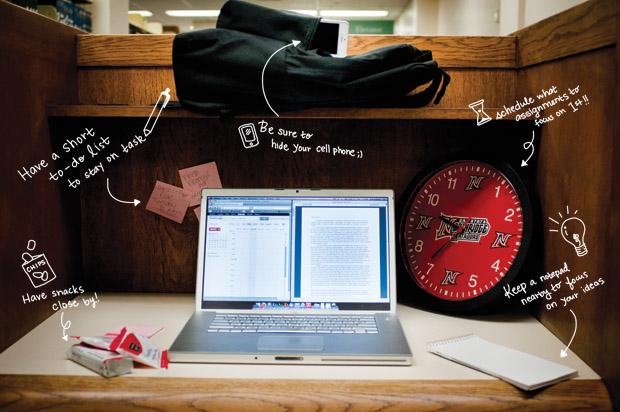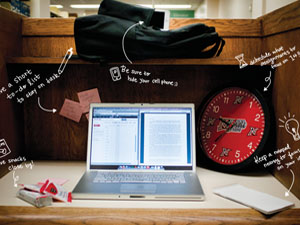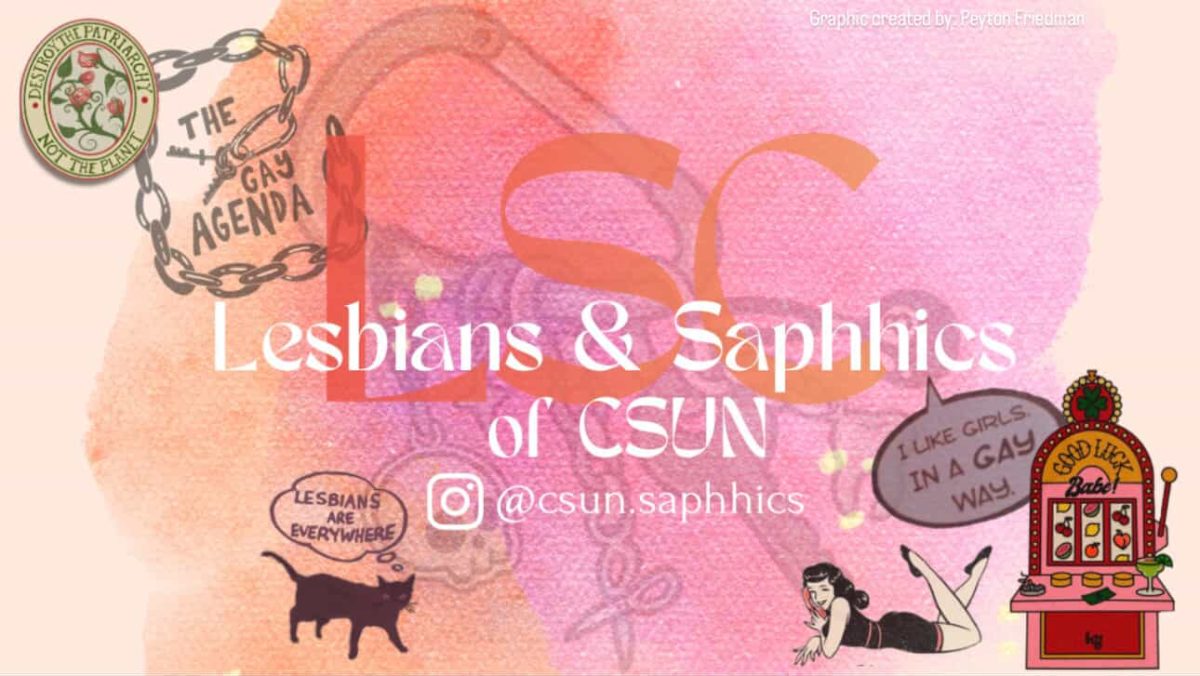
President Dianne F. Harrison encouraged faculty members at this year’s faculty retreat to consider the idea of integrating Apple’s iPad and various educational apps, such as iBooks Author, into their classrooms.
Two ideas being implemented are The iPad Initiative, an idea presented by Apple to integrate their tablets into a classroom environment, and the Course Redesign institute, a two-week summer program to train CSUN faculty members to restructure their face-to-face classes into an online or hybrid environment.
Both ideas are ways the campus can further incorporate technology into an educational environment. Harrison said that iPads can improve student learning outcomes.
Sami Birmingham-Babauta, 19, sophomore kinesiology major, said that having an iPad makes doing homework more accessible due to its portability, but recognizes the likelihood of distraction as a downside.
“While I’m in class and I’m looking at the PowerPoints or Moodle, I might end up looking at something else, go on Instagram or something I shouldn’t be on during class” Birmingham-Babauta said.
The multi-platform format used by CSUN will continue to be supported, and the integration of the Apple platform will offer more to students and faculty, Harrison said.
“The Apple platform does offer an innovative option because it provides an intuitive hardware platform for students and faculty to use, their infrastructure, plus a relatively mature suite of software application options,” she said.
The software application options have 700,000 regular and more than 20,000 educational apps.
Harrison said that her goal is to have a rent-to-own iPad plan that would cost students as little as $75 per semester, which would then result in owning the iPad after two years and the number of free and low-cost e-texts would offset the high costs of hard-copy texts.
“Apple has offered to assist with an affordable business plan and our financial aid staff have indicated that the cost to purchase or lease to own an iPad could easily be subsumed into the financial aid package especially if it is a substituted for expensive hard book texts,” Harrison said.
Computer science professor Lucy Parker, who conducted surveys on her freshmen students, said they tend to prefer the hard-copy of a textbook over its e-book version.
Birmingham-Babauta said she prefers a hard-copy textbook as well.
“(In) three of my classes we don’t have textbooks, it’s e-books. That’s kind of hard. I hate reading online,” Birmingham-Babauta said.
After attending the Course Redesign Institute last summer, Parker said she is not sure if online and hybrid reconstruction is best for students.
“After two weeks of that institute, I’m sort of half-hearted on whether going online for some courses is the best route or is the best interest for our students,” Parker said. “For some courses, yes. For some courses face-to-face has certain values and we should keep it that way. Some courses you can get away with 50 percent face-to-face and 50 percent online.”
Harrison left the option open for faculty members who want to wait and see how the initiative applies in practice with their colleagues’ courses.
Ramiro Galingo, 22, junior computer science major, said that the shift toward using technology in classrooms is an innovative way to try new things.
“(It will) decrease needs in carrying around heavy textbooks,” Galingo said. “It also increases innovations in ways of teaching.”
Although he supports the initiative, his main concern with using iPads and e-books in classrooms is that traditional note-taking may be affected.
“It’s different on actual tablets (and) it’s different on iPads. In a traditional textbook you can markup, you can take notes, you can do whatever you damn well please pretty much,” Galingo said.
Parker said online classes or hybrid classes depend on the student or professor.
“Not every professor is cut to be an online teacher and not every student is cut to be an online learner,” she said. “So I think it’s not a one size fits all thing. You have to see if you are ready or you are that kind of learner. You have to be a mature learner and a mature student, in the way of not age, but discipline.”
Parker also said the quality of teaching and learning could be affected by online courses and technology.
But Harrison said iPads and e-books would enrich the classroom environment and help teachers and students.
“It is important to keep in mind that the iPad is a multi-functional tool that serves as a textbook replacement, a portal to the internet and rich reference material and a container of engaging apps and a means of collaboration,” Harrison said.
Favoring the face-to-face classroom setting and avoiding online classes completely, David Bravo, 19, sophomore psychology major said technology can be a distraction for students.
“When you’re trying to study at home you get bored and you start going on other websites,” he said. “Sometimes it leads to procrastination.”






